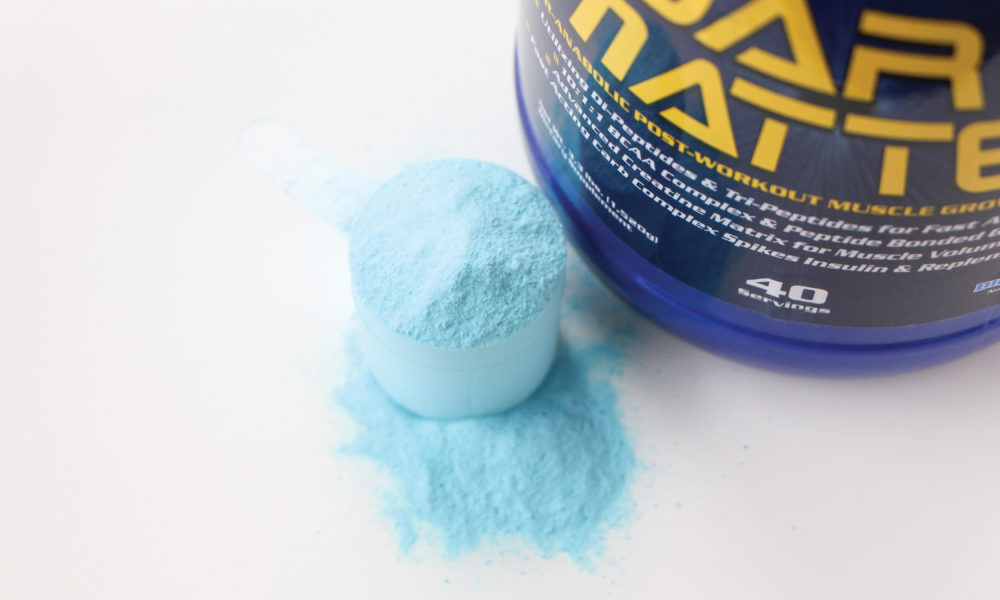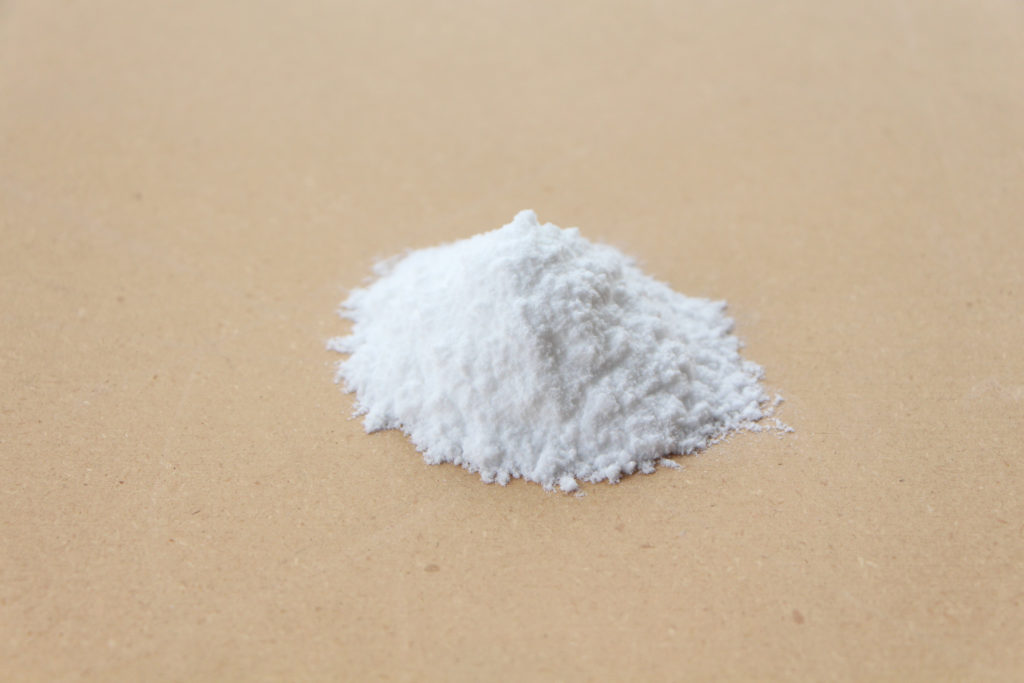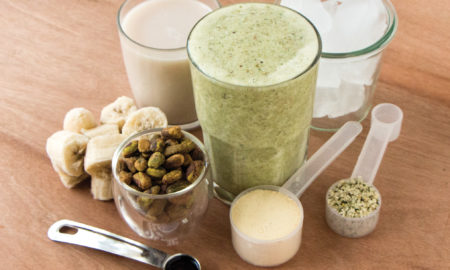

New research suggests that glutamine actively contributes to the muscle-building process.
By George L. Redmon, PhD, ND
PQ: In simpler terms, glutamine depletion not only results in a decrease in cell volume, but also negatively impacts leucine’s ability to complete the protein synthesis process.
Glutamine is the most abundant free amino acid in the body and is known to play a regulatory role in several cell specific processes including metabolism, cell integrity, protein synthesis, and degradation, contractile protein mass, redox potential, respiratory burst, insulin resistance, insulin secretion, and extracellular matrix synthesis. Glutamine has been shown to regulate the expression of many genes related to metabolism, signal transduction, cell defense and repair, and to activate intracellular signaling pathways. Thus, the function of glutamine goes beyond that of a simple metabolic fuel or protein precursor as previously assumed.
— Department of Physiology and Biophysics, University of São Paulo, Brazil
The above statement is in complete contrast to past studies that have suggested that glutamine supplementation is useless and that catabolic stress wasn’t destructive enough to disrupt the body’s ability to maintain adequate levels of glutamine, especially in healthy well-nourished individuals. Glutamine, it seems, is making a muscle-building comeback.
Considered a non-essential amino acid, meaning the body can produce enough of it on its own, research has shown that in cases of severe illness, burns, infection, injury or surgery, that glutamine is extracted from muscle tissue at a faster rate to help promote healing, hence its tag as a conditionally essential amino acid.
Comparably, researchers at the University of Maastricht in the Netherlands found that plasma glutamine concentration decreased after two hours of recovery. These researchers also noted that it took seven hours for glutamine to return to pre-workout levels. Similarly, British researchers recently reported that the negative short-term effects of exercise on plasma glutamine levels may be cumulative, meaning following continuous bouts of heavy training, incremental reductions in plasma glutamine levels may become more prominent over time. In other words, if you are in the gym five to six days a week, your glutamine stores are taking a beating.
Protein Synthesis Partner
Glutamine, the most abundant amino acid on the skeletal frame, is regaining attention because of its positive impact on protein synthesis. Newer updated studies show that glutamine greatly influences the anabolic/metabolic actions of other formidable muscle-enhancing nutrients and other cellular-recovery activities. For instance, despite the amount of press devoted to leucine’s extraordinarily ability to increase protein synthesis, researchers at the Huntington College of Health Sciences in Knoxville Tennessee note that amino acids like glutamine and leucine have a unique muscle signaling effect on protein synthesis. According to these researchers, glutamine has the largest positive impact on protein synthesis, although it needs leucine to finish what it started.
This fact is exemplified in comments above by researchers at the University of São Paulo who note that glutamine regulates the expression of many genes related to metabolism, signal transduction, cell defense and repair, as well as the activation of intracellular signaling pathways. Researchers also speculate that because of glutamine’s ability to increase nitrogen levels within the cells that protein synthesis activities occur at a faster rate.
Glutamine, BCAAs, And Leucine

By now you know that branch-chain amino acids administered before and after workouts reduces muscle damage and also accelerates recovery. Ironically, results from a 2012 study by researchers at the Department of Experimental Medicine at the University of Parma in Italy revealed greater improvements in lean-mass retention from supplemental BCAAs combined with glutamine versus BCAAs alone. These researchers discovered that the synergistic blend of glutamine and BCAAs decreased BCAA oxidation, especially leucine, and accelerated muscle hypertrophy. Moreover, there is now definitive evidence that leucine is the key amino acid in this trio that upregulates the mTOR (mammalian target of rapamycin) pathway that accelerates protein synthesis. Despite this fact, leucine still needs a key to turn on the mTOR pathway. That key is glutamine, according to collaborative research between investigators at the University of Leicester (United Kingdom) and Louisiana State University.
A key reason to supplement glutamine before and following a workout is that cells must be preloaded with ample amounts of glutamine beforehand to enhance leucine’s uptake and upregulation of cell volumization. Cells deficient in glutamine exhibit decreased mTOR activity, even when adequate leucine and other essential amino acids are present, leading researchers to conclude that glutamine may activate mTOR differently from leucine but appears to work better with it. This belief was recently confirmed by scientist at the University of Basel in Switzerland, reporting that glutamine is metabolized through a process called glutaminolysis, which ultimately signals to the mTOR pathway to accelerate protein synthesis.
In simpler terms, glutamine depletion not only results in a decrease in cell volume, but also negatively impacts leucine’s ability to complete the protein synthesis process. This symbiotic protein relationship between glutamine and leucine could be compared to a spaceship’s initial blastoff (glutamine), and a second blast (leucine) that sends the shuttle into orbit. In fact, the above researchers noted that without glutamine, the glutaminolysis cycle is disrupted and puts the brakes on this critical anabolic course of metabolic events.
Glutamine Plays Well With Others
Of particular interest to physique athletes, glutamine also increases the effectiveness of other supplements such as alanine, creatine, and whey protein. For example, in a March 2016 study appearing in the journal Nutrition, Chinese researchers reported that the combination (alanine/glutamine) enhanced glutaminolysis in the liver and skeletal muscle, increasing signals that upregulates the mTOR pathway while simultaneously decreasing signals transmitted by the protein degradation corridor. Swedish researchers remind us that many proteins sources like whey and casein can stimulate protein synthesis, but mainly within internal organs and not the muscle. However, these researchers discovered that when free-form glutamine was combined with whey protein, muscle protein synthesis increased from 15.9 percent to 24.2 percent. These scientists also noted that glutamine plus whey resulted in a 25 percent increase in protein synthesis within the small intestine.
In a different but related study, researchers at Auburn University divided test subjects into three groups. Group one received a placebo. Group two was administered creatine for seven weeks. Group three was given creatine and glutamine every day for seven weeks. These researchers reported that there was a significant increase in body mass, lean body mass, and initial rate of power production in the creatine group but moreso in the creatine/glutamine group as compared to placebo.
Glutamine also participates in the regulation of a multitude of other anabolic processes. For example, glutamine enhances glycogen storage and stimulates glucose synthesis freely in lieu of carbohydrates, promotes growth hormone production, as well as inhibiting myostatin expression (the gene responsible for muscle atrophy).
Beyond Muscle Performance

Last but not least here, there is conclusive evidence that glutamine counters exercise-induced immune dysfunction. In a study appearing in the European Journal of Applied Physiology, Brazilian researchers found that hydrolyzed whey protein enriched with glutamine moderately prohibited lymphocyte apoptosis (programmed cell death), resulting from sustained and intensive workouts. As a reminder here, lymphocytes are white blood cells produced by the immune system to protect the body from cancerous cells, pathogens, and other foreign invaders. Glutamine ensures that these guys remain vibrant and robust.
Current data also indicates that protein synthesis is also greatly enhanced because glutamine is intimately involved with maintaining the health of — and is easily absorbed by — the small intestine, the site of nutrient absorption. The small intestine is loaded with rapidly dividing cells called enterocytes, which gobble up about 50 to 60 percent of the glutamine you ingest. Reciprocally, this heightens mTOR activity as well as the growth of these enterocytes. Because glutamine is a prerequisite for the synthesis of nucleotides (a group of molecules that when linked together form the building blocks of DNA or RNA) and rapidly dividing enterocytes, researchers at Wuhan Polytechnic University in China concluded, in a 2015 study, that during times of severe metabolic stress, the body’s natural stores of glutamine may be inadequate to meet physiological needs.
Also there is evidence that glutamine and creatine boost the immune response following workouts due to increased mitochondria function. As you know, the mitochondria is the place in the cell where energy is manufactured, which is used to invigorate the chemical processes that sustain life. Unfortunately, declining mitochondrial function not only sets the stage for reduced muscle power, but the manifestation of disease due to impairment of the immune system.
While some scientists feel that the body produces ample amounts of glutamine to meet its systematic needs throughout times of pronounced stress (the kind you experience following intense workouts or an injury), quite a bit of recent research seems to indicate that your body may need more glutamine than it can create at that moment. Scientists at the University of Trieste in Italy note that during exhaustive regimented training programs, glutamine levels are depleted due to decreased synthesis and an increased uptake by the liver and immune cells, and not the muscle. For these reasons, I suggest that hard-training physique athletes take five grams of glutamine before and after workouts, and a single dose of five grams on non-training days. IM





















You must be logged in to post a comment Login